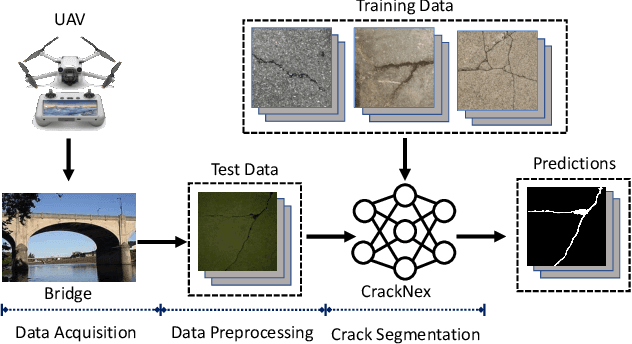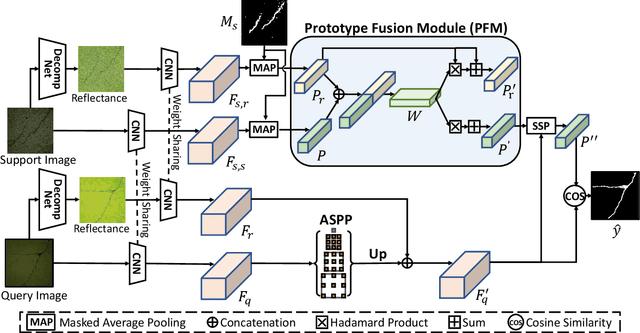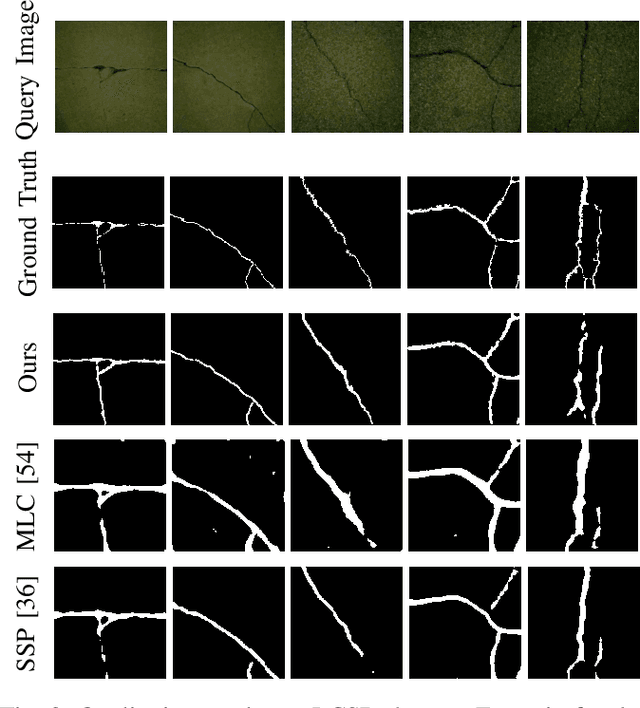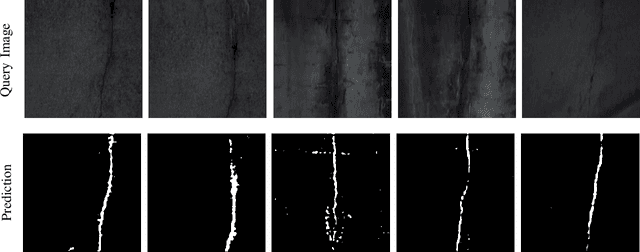CrackNex: a Few-shot Low-light Crack Segmentation Model Based on Retinex Theory for UAV Inspections
Paper and Code
Mar 05, 2024



Routine visual inspections of concrete structures are imperative for upholding the safety and integrity of critical infrastructure. Such visual inspections sometimes happen under low-light conditions, e.g., checking for bridge health. Crack segmentation under such conditions is challenging due to the poor contrast between cracks and their surroundings. However, most deep learning methods are designed for well-illuminated crack images and hence their performance drops dramatically in low-light scenes. In addition, conventional approaches require many annotated low-light crack images which is time-consuming. In this paper, we address these challenges by proposing CrackNex, a framework that utilizes reflectance information based on Retinex Theory to help the model learn a unified illumination-invariant representation. Furthermore, we utilize few-shot segmentation to solve the inefficient training data problem. In CrackNex, both a support prototype and a reflectance prototype are extracted from the support set. Then, a prototype fusion module is designed to integrate the features from both prototypes. CrackNex outperforms the SOTA methods on multiple datasets. Additionally, we present the first benchmark dataset, LCSD, for low-light crack segmentation. LCSD consists of 102 well-illuminated crack images and 41 low-light crack images. The dataset and code are available at https://github.com/zy1296/CrackNex.
 Add to Chrome
Add to Chrome Add to Firefox
Add to Firefox Add to Edge
Add to Edge